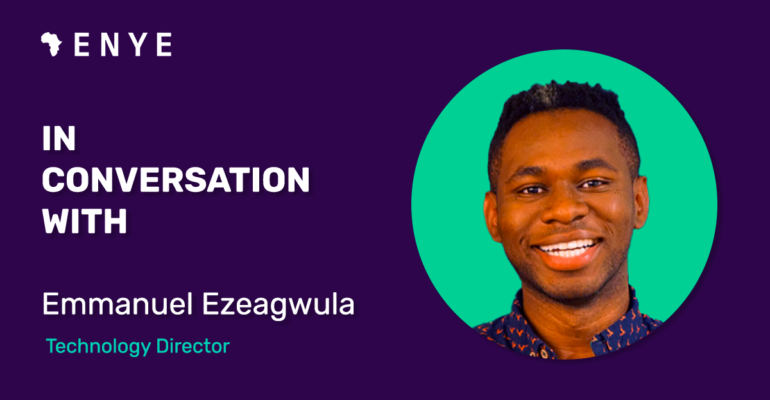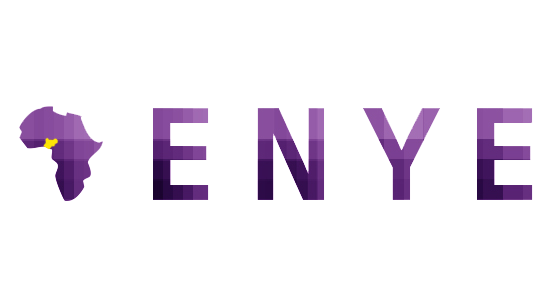“I break things, then I build new things” — Interview with Manny Ezeagwula, Enye’s Technology Director

“I break things, then I build new things” — Interview with Manny Ezeagwula, Enye’s Technology Director
What is your earliest memory of interacting with tech?
I was seven years old in Nigeria when Windows 97 was the in-thing. My dad, who lived in the United States, sent me a computer. I set up the computer together with my uncle. Around that time, I used to tinker with gadgets—think radios, old TVs, a walkman, particularly the magnet side of things—I disassembled and reassembled them.
Wait, you got away with breaking things?
I got one or two slaps and belt-whippings, canes, and all the good stuff Nigerian parents discipline their kids.
Aha! So it’s been the tech-bro life ever since?
Actually, no. It’s not been a straight line at all.
I finished university as a Psychology major, but I switched my focus a few times. I minored in Political Science; at some point, I even studied Communication. There was a girl I liked who was into Communication as well. So I was like, “I guess I’m studying communications now.”
Interesting. So, at what point did you start getting your hands in software programming?
During my last year in university, I worked with my professor; his research involved statistics; numbers needed to be crunched. I preferred to use script mode in SPSS instead of just clicking buttons on the interface. I love mathematics and logical thinking, so I got in deep on the data side of things. After university, I got a job in data analytics which quickly became boring. Then I found SQL and VBA; I quickly got used to these as well. From then on, my curiosity drove me into deeper, darker places.
Tell me more.
Uche and I moved to Hayward. We leased an apartment for a year. While Uche was at boot camp, I figured that the mesh of analytics and programming brought me so much joy, but I needed to learn it somehow. I went into self-teaching mode, starting with R and then Python much later.
What exactly do you do now?
I’m a senior product manager for developer experience at a fintech company. In the past few years, I’ve held similar roles at the nexus of product engineering and product management. I’ve worn a split hat of roles, figuring out what we should be building versus what we wanted to build. The current position is purely product manager-focused, and because of my engineering background, I also build fintech products for software engineers.
The idea of developer experience is still very novel. How does that intersect with your product-focused career?
I think it’s always been there, but it wasn’t prioritised as much, And now that it has a name, we see a lot of focus on it. It started when companies like Twilio, Stripe, Sendgrid, where the core part of using their product requires a developer, have it so self-service that any developer can just go to their documentation and get started without needing to talk anyone. The experience of the developer is key to them.
So it’s like a user experience, but for engineers.
Yes, absolutely. Developers just want to read through and be sure that this thing works and then go back to their team and tell them, “We can use this.” Companies have started to see the value of developer experience as part of the marketing funnel into Operations. Those things that Apple has done for the hardware space, software companies are now starting to care about them.
How did you come into the Enye equation?
Uche and I met in high school in Hawthorne, California, in 2005. We clicked very quickly. After high school, we kept in touch.
When we lived together in the Bay Area, we had many conversations at that time. One was about being involved in Nigeria. I wasn’t sure how I was going to be involved. Years later, Uche reached out. He wanted to pick my brain on something he was putting together. I jumped at the opportunity. I’d just started to find my foot as a person. I had a better sense of who I was, and my current trajectory would fit into this adventure.
In the early days, there were five founders in total. We had a meeting in San Francisco at a cafe, fleshed things out, had coffee, signed papers, and birthed Enye.
You’re an incredibly busy man these days. How do you stay productive?
I have perfected the art of saying “No” and being able to prioritise. I also have a running list of tasks, but across them, I develop an order of priority. In essence, I manage my task list like a product roadmap and embrace tools that help do just that; Todoist, for example.
What’s the one thing you don’t need to spend on, across them, but you do anyway?
Remember how I used to break gadgets as a kid? These days, I’m buying devices, taking them apart, and programming them to talk to themselves.
Nerd Hall of Fame contender there.
In California, we get these wildfires occasionally. Last year’s wildfire was a nasty one. I didn’t want to keep pulling up my phone to check the air quality outside; I was curious about what the air quality was inside as well. I bought some equipment parts, did some research, and built my indoor air quality sensor. Doing things like that brings me unquantifiable joy.
Even your guilty pleasure sounds like work; how then do you unwind?
I love spending time with myself: going to a movie or a concert, taking myself out on a date. I do many of these things with friends and partners, but it hits different when I do them alone.
With all the information and experience you have now, if there’s one thing you could tell yourself of ten years ago, what would that be?
Don’t take yourself too seriously. It’s up to interpretation, but I think we can be quick to add pressure to things that shouldn’t be or things that should be. We like to fill in this need to be, achieve, be known and seen, but it’s okay to laugh at yourself once in a while.
So, in essence, “No dey too strong your chest.”
Yes. Exactly.
What’s one hot take you have that can serve as career advice?
There is a growing trend of up-and-coming people in tech who want to learn as many programming languages as possible. Someone asks, “What languages should I learn?” Another person responds with a list of five languages. And now, people want to learn all five languages.
Acquiring so many programming languages is like gathering sprinkles. It’s pointless and adds no value for the most part.
For someone who’s just starting up, pick the one language that interests you and make sure you master it. Focus on the right tool for the job and focus on the strength and capability of that tool, maximising it. If you need another tool, then you can figure out the next tool that helps you get the job done. Learning too many programming languages (at once) is not a useful use of time.


